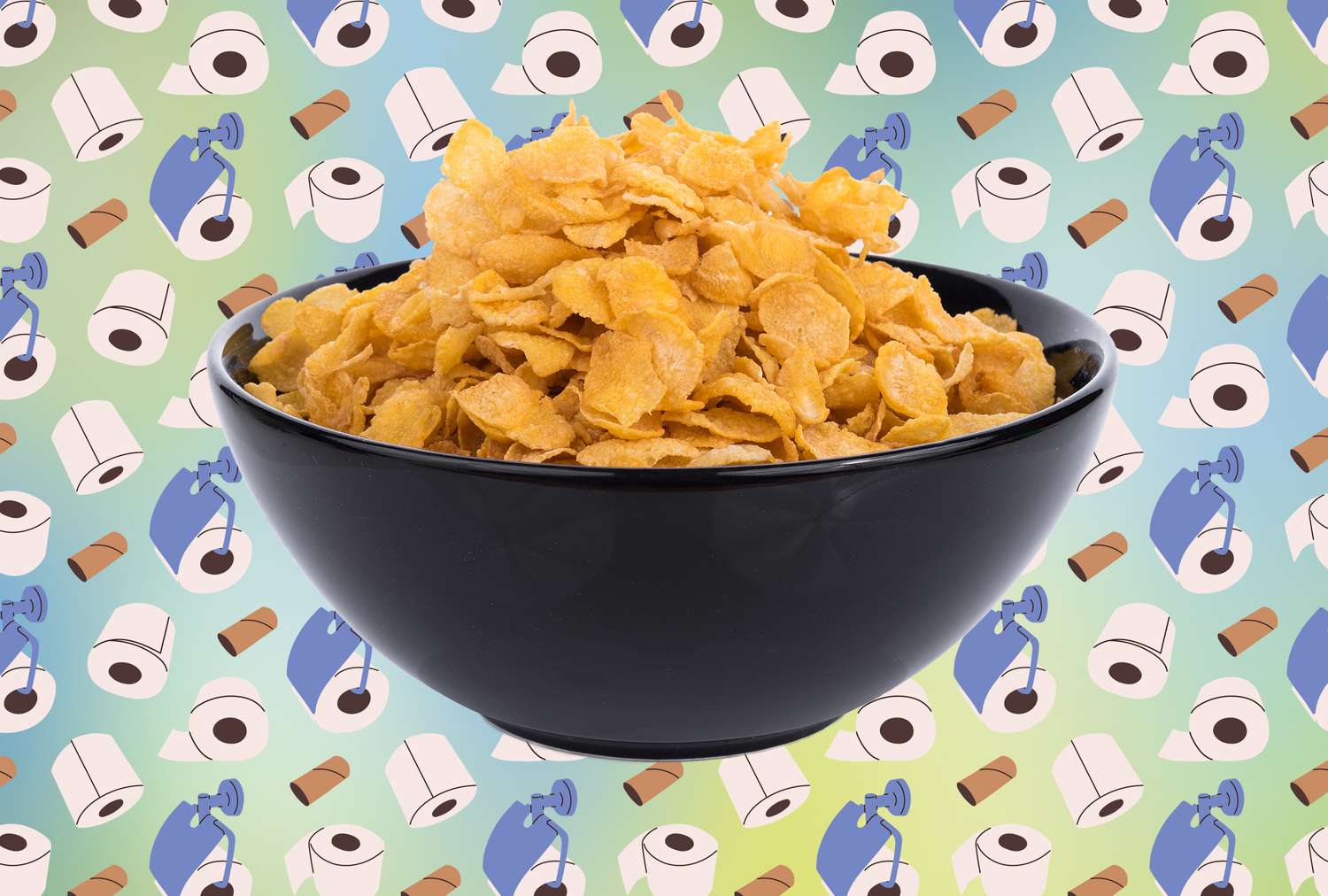Experiencing sluggish digestion can be a common issue, affecting many individuals who deal with constipation or slow bowel movements, often linked to inadequate dietary fiber intake. Most people fail to meet the recommended daily fiber intake of 25 to 38 grams, but incorporating fiber-rich foods can significantly aid digestion.
For those looking for a quick meal option, cereal can be an excellent source of fiber. While some cereals are more akin to desserts than nutritious breakfasts, many high-fiber choices are available. Dietitians have shared their favorite selections and tips for choosing cereals that promote digestive health.
1. Food for Life Ezekiel 4:9 Sprouted Crunchy Cereal
Packed with nutrition, this cereal offers 6 grams of fiber and 8 grams of protein per half-cup serving, along with just 1 gram of added sugar. Made from sprouted grains, it may aid digestion effectively.
– Nutrition Information for ½ cup (57g) without milk:
180 calories, 1 g total fat, 0 g saturated fat, 0 mg cholesterol, 35 g carbohydrates, 6 g fiber, 1 g sugar (1 g added sugars), 8 g protein, 160 mg sodium.
2. Post Shredded Wheat
A classic fiber-rich choice, two biscuits provide 7 grams of fiber along with a significant amount of phosphorus and various vitamins. With no added sugars or sodium, it’s a wholesome option that pairs well with fruits like berries or bananas for additional fiber and taste.
– Nutrition Information for 2 biscuits (51g) without milk:
170 calories, 1 g total fat, 0 g saturated fat, 0 mg cholesterol, 41 g carbohydrates, 7 g fiber, 0 g sugar (0 g added sugars), 6 g protein, 0 mg sodium.
3. Bob’s Red Mill 7-Grain Hot Cereal
This warm and hearty cereal combines seven whole grains and seeds, delivering 6 grams of fiber per ¼-cup serving. Cooking it with milk can provide added protein, while fruit can enhance its health benefits.
– Nutrition Information for ¼ cup (40g) without milk:
150 calories, 1 g total fat, 0 g saturated fat, 0 mg cholesterol, 30 g carbohydrates, 6 g fiber, 0 g sugar (0 g added sugars), 5 g protein, 0 mg sodium.
4. Grape-Nuts
Made with whole-grain wheat and malted barley, Grape-Nuts delivers 7 grams of fiber in a ½-cup serving. Dietitian Alexandria Hardy remarks, “I love a bowl of classic Grape-Nuts in the morning to keep everything moving.”
– Nutrition Information for ½ cup (58g) without milk:
200 calories, 1 g total fat, 0 g saturated fat, 0 mg cholesterol, 47 g carbohydrates, 7 g fiber, 5 g sugar (0 grams of added sugars), 6 g protein, 280 mg sodium.
5. Catalina Crunch Cinnamon Toast Cereal
With 9 grams of fiber and 11 grams of protein per ½-cup serving, this cereal is designed with chicory root fiber and pea protein, utilizing monk fruit extract instead of added sugar, making it ideal for those monitoring blood sugar levels.
– Nutrition Information for ½ cup (36g) without milk:
110 calories, 5 g total fat, 1 g saturated fat, 0 mg cholesterol, 14 g carbohydrates, 9 g fiber, 0 g sugar (0 g added sugars), 11 g protein, 110 mg sodium.
6. All-Bran Original
This option is a powerhouse of fiber, offering 12 grams per ⅔-cup serving, alongside vitamins and minerals. Although it contains added sugars, this may appeal to those who prefer a sweeter taste. Adding milk or yogurt can further increase protein content.
– Nutrition Information for ⅔ cup (41g) without milk:
120 calories, 2 g total fat, 0 g saturated fat, 0 mg cholesterol, 32 g carbohydrates, 12 g fiber, 9 g sugar (8 g added sugars), 5 g protein, 95 mg sodium.
7. Kashi Go Protein & Fiber Cereal Original
This cereal serves up 12 grams each of fiber and protein per serving, thanks to its combination of whole grains. While it contains more added sugars than some alternatives, its high fiber content makes it a satisfying and beneficial choice for gut health.
– Nutrition Information for 1¼ cups (63g) without milk:
180 calories, 2 g total fat, 0 g saturated fat, 0 mg cholesterol, 45 g carbohydrates, 12 g fiber, 9 g sugar (9 g added sugars), 12 g protein, 135 mg sodium.
8. Purely Elizabeth Honey Peanut Butter Superfood Cereal
This cereal, packed with 5 grams of fiber from oats, sorghum, and chia seeds, supports gut health through complex carbohydrates. Adding fresh or frozen fruits can further enhance its fiber content.
– Nutrition Information for ⅔ cup (55g) without milk:
240 calories, 8 g total fat, 4 g saturated fat, 0 mg cholesterol, 38 g carbohydrates, 5 g fiber, 7 g sugar (7 g added sugars), 5 g protein, 110 mg sodium.
How to Choose a Healthy Cereal
When shopping for cereals that promote digestion, dietitians offer the following guidance:
– High in Fiber:
Look for cereals with at least 4 grams of fiber per serving, focusing on whole grains. However, moderation is key; excessive fiber intake can lead to bloating or constipation. Aim for a balanced mix of fiber sources.
– Low in Sugar:
Ideally, choose cereals with 5 grams or less of added sugar per serving to keep sugar levels in check. Remember that a small amount of sugar can enhance flavor, especially in high-fiber options.
– Check Serving Size:
Serving sizes can vary greatly between cereals, which impacts fiber, sugar, and caloric intake. Always review the serving size to avoid unintended portion sizes.
By incorporating these high-fiber cereals into your diet, you can enhance your digestive health while enjoying a quick and satisfying meal.










